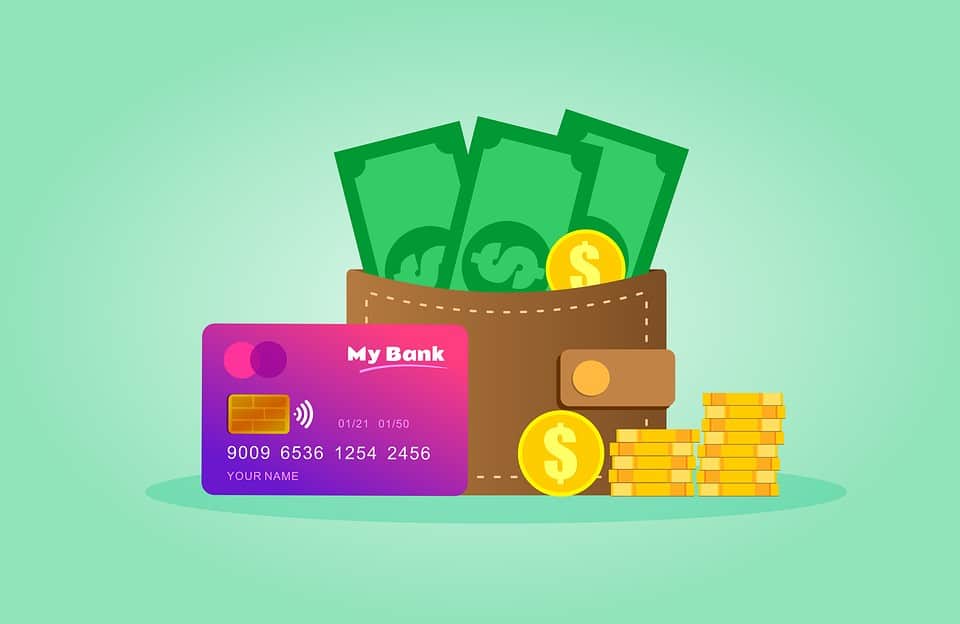Latest News
Why Should You Choose Forbrukslån or Consumer Loan?

It’s important to know what type of loan you will need for your business. Even if you are not considering borrowing money for yourself, it’s essential to understand how your business will be affected by the decision – whether it will help or hurt your profits. In this article, discover the pros and cons of consumer loans from different companies and decide which type might be best for your needs.
The types of loans for business include a business loan, cash advance, or commercial credit. The amount of forbrukslån that you’re looking for depends on your business’s needs. The most common type is a short-term personal loan, which can be used to pay employees, buy inventory, pay invoices, and so on.
Another popular option is a long-term personal loan, which can be applied to things like building construction or the purchase of heavy equipment. Businesses that are large enough need an industrial loan to provide capital for growth and expansion.
Pros and Cons

Many businesses need to have a certain amount of debt to help their company grow. The downside of these loans is that there are many hidden costs, and banks don’t always have the business’s best interest at heart.
Some debts involve collateral that can be a bad deal for the consumer because they can lead to problems and piles of bills later on. Before you sign a contract with a specific financier, make sure you know all of the details to avoid getting taken advantage of.
Advantages
1. You’ll Have Money for Capital
With this said, borrowing money will help you set up a business with initial expenses. You’ll have funds to cover equipment, rental, inventory, payroll, technology, marketing costs, and hiring expenses. Depending on the industry where you belong, it might be possible to borrow from your credit card, family, friends, or private institutions to help you with the initial investment for your venture.
2. Retain Business Ownership
A start-up debt is one alternative for investor financing for people who may want to share equity in the business. This way, you won’t have obligations with other people once you’ve taken off the ground. If your company is thriving, you don’t have to pay a part of the money to investors, and you can focus on paying the debts instead.
You’ll have more leeway on your partnerships when you fund your venture. This is where you’ll be given an option to choose your investors based on your goals and strategies rather than because of the amount of money they can provide.
It’s necessary to know that investors will have the power to make decisions on your company that can affect its trajectory. If you feel strongly about maintaining that business control, applying for a start-up may be better.
3. Building Business Credits
In the future, you might need to infuse a large sum of cash to expand your operations, afford additional inventory, and fund marketing costs. When you’re in the market for financing, you’ll be able to get more interested investors when you have an excellent credit history of paying off your debts.
Personal loans can be your starting point if you want to build a credit history that shows your trustworthiness and reliability. This will lower the investment risks for various lenders, and you’ll also get the best interest rates.
Comparing the different types of consumer loans in the market can be helpful. When you take out smaller amounts and pay them back, you’ll have a significant chance of getting approved for more considerable amounts with lower interest rates.
Disadvantages
1. Hard to Qualify For
From a lender’s point of view, start-ups are a very risky venture. First, they will determine your eligibility through your credit history, financial records, revenues, and business longevity. It’s challenging to get approved and become qualified if you don’t have enough collateral assets, lack strong personal credit, and require a larger sum. Applying and pre-qualifying for these debts may help you save time and money.
2. These Debts May Restrict Cash Flow
The term loans may require monthly payments for a combination of principal and interest. Missing or late payments may damage one’s personal credit and business. Other owners should consider making regular payments that can be a huge factor in their budding organization later on in life. Before applying for a start-up, review your financial statements and plan accordingly so you can meet your monthly dues.
Types to Know
When you are looking for extra cash to fund your business, you would want to make the right decision from the start. There are five types of debts that may be suitable for your business. The first is financing from a traditional bank. However, this type of loan is difficult to get because banks will only offer credit to companies with strong credit ratings and a solid financial history.
The second type is a credit card-based loan, typically offered by banks and other lenders. An advantage of this type of borrowing is that it’s easy to get approved for a small amount without needing much collateral.
The third option that the business owners might consider is an unsecured personal loan from a bank or other private institutions. These types don’t need collateral, but borrowers can borrow up to 80% of their value as long as they have excellent credit scores and high income that can be found in their business reports.
Fourth, there are high-interest payday loans available through third-party providers. However, these payday loans carry a high-interest rate, which could spell disaster if your company isn’t able to pay it off on time. You would need to pay for them in less than six months or less, and they are only ideal if you’re a trustworthy borrower.
Fifth, some consumer installment loans also require collateral, but they are not subject to the exact requirements and restrictions offered by the bank. Choose your options carefully, compare the rates, and see if you can get approved by lenders that provide higher amounts with low-interest rates.
Kenneth is a proud native of sydney, born and raised there. However, he pursued his education abroad and studied in Australia. Kenneth has worked as a journalist for almost a decade, making valuable contributions to prominent publications such as Yahoo News and The Verge. Currently, he serves as a journalist for The Hear Up, where he focuses on covering climate and science news. You can reach Kenneth at [email protected].










